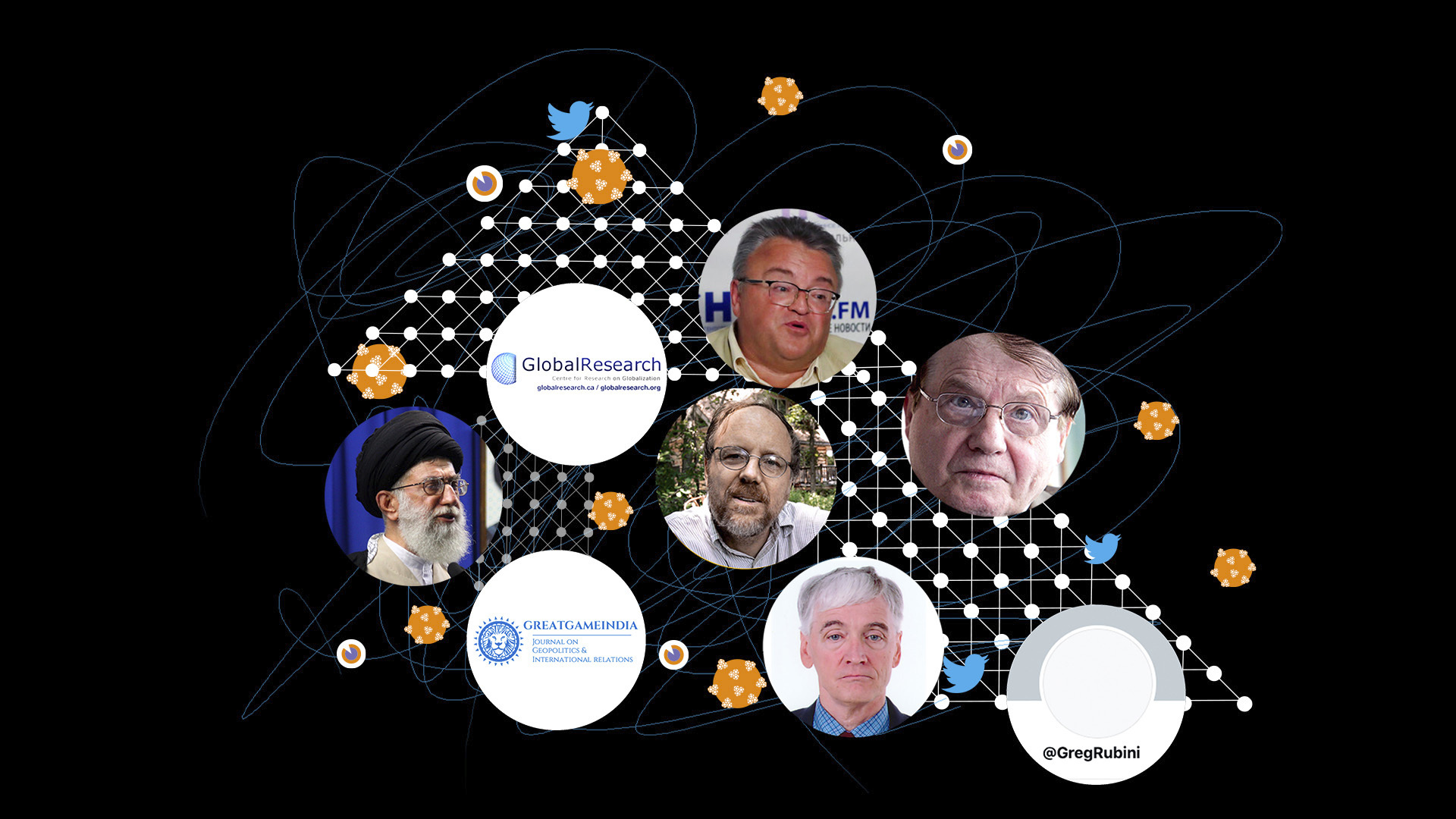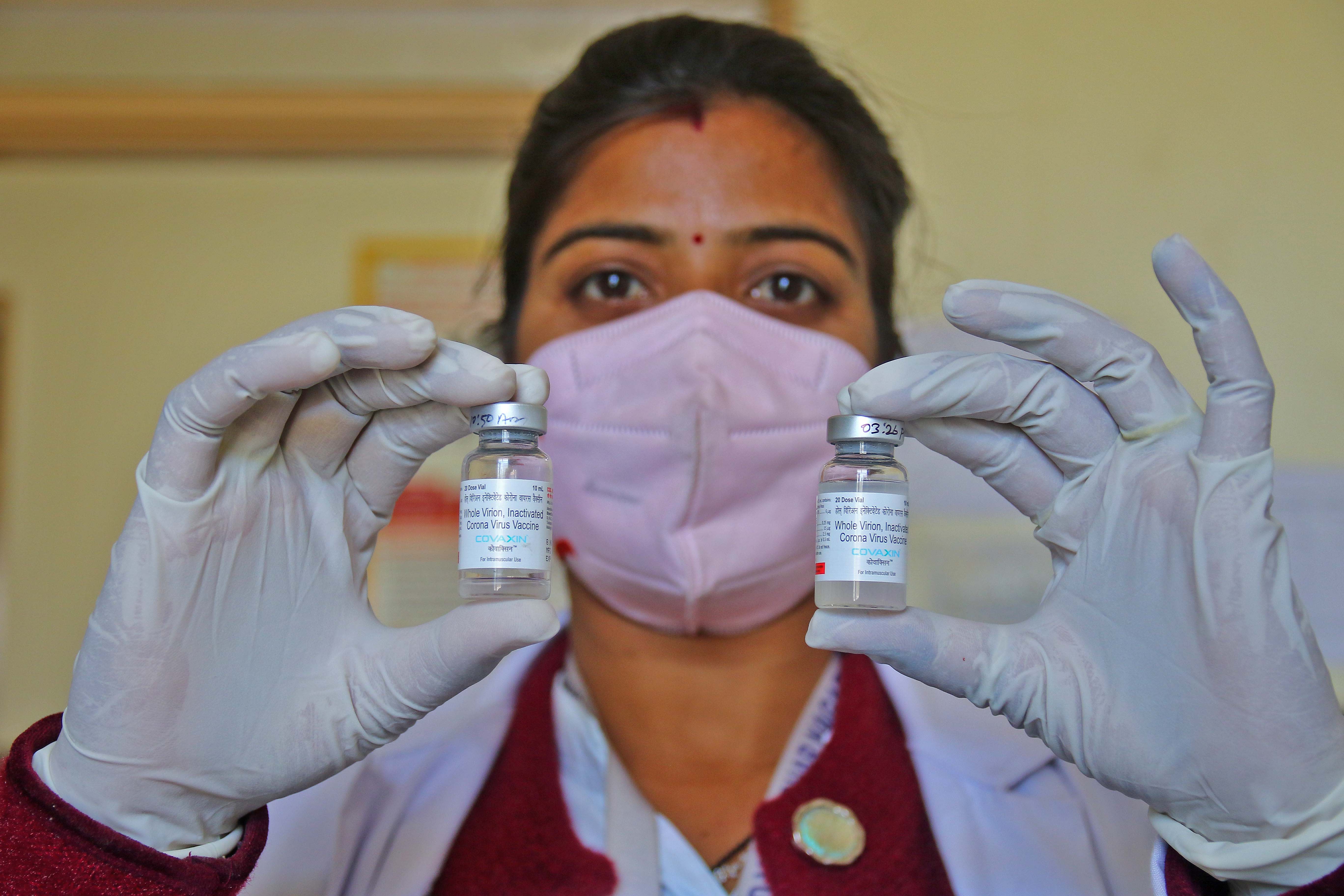President Joe Biden is extending a ban on housing foreclosures to June 30 to help homeowners struggling during the coronavirus pandemic. The moratorium on foreclosures of federally guaranteed mortgages had been set to expire March 31.
That's a relief for many homeowners as experts warn the pandemic is far from over. Despite an improvement in the average number of new cases per day, which has dipped below 100,000 per day in the United States, the continued rise and spread of virus variants is of concern to health experts, as well as doctors and nurses.
That's because, one year into the pandemic, healthcare workers say there still aren’t enough N95 masks to keep them safe. Yet millions of N95 masks are pouring out of U.S. factories and heading into storage, according to an Associated Press investigation that found that this logistical breakdown is due to federal failures over the past year to coordinate supply chains.
Meanwhile, the U.S. has reported more than 27 million coronavirus cases and 489,000 virus-related deaths since the start of the pandemic, according to a tally by NBC News.
Here are the latest coronavirus updates from the U.S. and elsewhere:
Biden Administration Increasing Vaccine Supplies, Warns of Weather Delays
President Joe Biden’s administration is increasing coronavirus vaccine supplies sent to states to 13.5 million doses per week.
Jeff Zients, Biden’s coronavirus coordinator, made the announcements during a regular White House call with governors on Tuesday.
White House press secretary Jen Psaki says that represents a 57% increase from when Biden took office nearly a month ago on Jan. 20.
Psaki also says the administration is doubling, to 2 million doses per week, the amount of vaccine being sent to pharmacies across the country as part of a program to extend access into neighborhoods.
However, delays in vaccine shipments and deliveries are likely because of severe weather across parts of the country.
The administration says the weather is expected to affect shipments from a FedEx facility in Memphis, Tennessee, and a UPS facility in Louisville, Kentucky. Both facilities serve as vaccine shipping hubs for multiple states.
The Centers for Disease Control and Prevention and other federal agencies are working with the jurisdictions, as well as manufacturing and shipping partners, to assess weather conditions and to help offset potential delivery delays and cancellations.
ADHD Diagnoses Have Skyrocketed Amid the Pandemic. Experts Say Parents Should Be Cautious.
Around the country, parents are seeking an ADHD assessment for her child during the pandemic. NBC News spoke to two dozen children, pediatricians, psychiatrists, psychologists and researchers, all who described a crisis among children suffering from inattention and tanking school performance.
Data from specialists involved with diagnosing and treating ADHD show just how much parents are struggling to get help: They are flooding an ADHD support line with questions, and ADHD diagnoses and prescriptions for related medications have soared.
"Covid has been a tipping point that has pushed some families to get help," said Dr. Melvin Oatis of the American Academy of Child and Adolescent Psychiatry, who said the stress of the pandemic, the shift to remote learning and social isolation have created "anxiety-provoking" conditions that affect students' attention.
Experts warn that children who appear to have symptoms of ADHD should have thorough evaluations to rule out other conditions or stresses related to the pandemic before they seek medication.
"Our concern is that pediatricians and families be very careful to not simply list the symptoms of ADHD, but to look at the child's history and use differential diagnosis to make sure we have the best possible explanation for the symptoms," said Dr. Arthur Lavin, a Cleveland-based pediatrician who has served on several national committees of the American Academy of Pediatrics.
Read the full story on NBCNews.com.
Cuomo Admits Mistakes Over Nursing Home Death Data, Doesn't Offer Apology
Under fire over his management of the coronavirus’ lethal path through New York’s nursing homes, Gov. Andrew Cuomo insisted Monday the state didn’t cover up deaths but acknowledged that officials should have moved faster to release some information sought by lawmakers, the public and the press, NBC New York reports.
“All the deaths in the nursing homes and hospitals were always fully, publicly and accurately reported,” the Democratic governor said, weeks after the state was forced to acknowledge that its count of nursing home deaths excluded thousands of residents who perished after being taken to hospitals. He explained the matter Monday as a difference of “categorization,” with the state counting where deaths occurred and others seeking total deaths of nursing home residents, regardless of the location.
“We should have done a better job of providing as much information as we could as quickly as we could,” he said. “No excuses: I accept responsibility for that.”
Cuomo, who has seen his image as a pandemic-taming leader dented by a series of disclosures involving nursing homes in recent weeks, said he would propose reforms involving nursing homes and hospitals in the upcoming state budget, without giving details.
But he continued to blame a “toxic political environment,” and “disinformation” for much of the criticism surrounding his administration’s handling of the issue.
Biden Administration Extends Mortgage Relief, Ban on Home Foreclosures
President Joe Biden is extending a ban on housing foreclosures to June 30 to help homeowners struggling during the coronavirus pandemic.
The moratorium on foreclosures of federally guaranteed mortgages had been set to expire on March 31. On his first day in office, Biden had extended the moratorium from Jan. 31. Census Bureau figures show that almost 12% of homeowners with mortgages were late on their payments.
The White House says the coordinated actions announced Tuesday by the Departments of Housing and Urban Development, Veterans Affairs and Agriculture also will extend to June 30 the enrollment window for borrowers who want to request mortgage payment forbearance — a pause or reduction in payments — and will provide up to six additional months of forbearance for borrowers who entered forbearance on or before June 30 of last year.
The White House says more than 10 million homeowners are behind on mortgage payments and Biden's actions are to help keep people in their homes amid “a housing affordability crisis” triggered by the pandemic. It says “homeowners will receive urgently needed relief as we face this unprecedented national emergency.”
Biden's administration says extending forbearance policies “will provide critical support to homeowners of color, who make up a disproportionate share of borrowers” having trouble paying their loans because of hardships related to the pandemic.
The actions announced Tuesday don’t address a federal moratorium through March 31 on evictions of tenants who’ve fallen behind on rent.
Hospitals Still Ration Medical N95 Masks as Stockpiles Swell
One year into the COVID-19 pandemic, many millions of N95 masks are pouring out of American factories and heading into storage. Yet doctors and nurses like Mary Turner, a COVID-19 intensive care nurse at a hospital outside Minneapolis, say there still aren’t nearly enough in the “ICU rooms with high-flow oxygen and COVID germs all over.”
While supply and demand issues surrounding N95 respirators are well-documented, until now the reasons for this discrepancy have been unclear.
The logistical breakdown is rooted in federal failures over the past year to coordinate supply chains and provide hospitals with clear rules about how to manage their medical equipment.
Internal government emails obtained by The Associated Press show there were deliberate decisions to withhold vital information about new mask manufacturers and availability. Exclusive trade data and interviews with manufacturers, hospital procurement officials and frontline medical workers reveal a communication breakdown — not an actual shortage — that is depriving doctors, nurses, paramedics and other people risking exposure to COVID-19 of first-rate protection.
Before the pandemic, medical providers followed manufacturer and government guidelines that called for N95s to be discarded after each use, largely to protect doctors and nurses from catching infectious diseases themselves. As N95s ran short, the Centers for Disease Control and Prevention modified those guidelines to allow for extended use and reuse only if supplies are “depleted,” a term left undefined.
Hospitals have responded in a variety of ways, the AP has found. Some are back to pre-COVID-19, one-use-per-patient N95 protocols, but most are doling out one mask a day or fewer to each employee. Many hospital procurement officers say they are relying on CDC guidelines for depleted supplies, even if their own stockpiles are robust.
LA Elementary Schools on Verge of Getting Green Light to Reopen
Los Angeles County has met the mark that permits elementary school students to go back to class for in-person learning, county officials said Monday evening.
The reopening of schools is for elementary students from kindergarten through 6th grade, and even though the county has met the figures required to receive the green light, the reopening will not happen immediately, NBC Los Angeles reports. Supervisor Janice Hahn said the county has received notice from Dr. Barbara Ferrer, the county health director, that it has met the necessary case count figures.
“We got that notice from Dr. Ferrer that we indeed hit that milestone and that we can begin to reopen elementary schools. And of course this all depends on if the teachers feel safe going back to school,” Hahn said.
Read the full story here
Tracking COVID Vaccine Progress by State
Muted Mardi Gras: Closed Bars, Barricaded Bourbon Street
Coronavirus-related limits on access to Bourbon Street, shuttered bars and frigid weather all were expected to prevent what the city usually craves at the end of Mardi Gras season — streets and businesses jam-packed with revelers.
Parades and parties on Mardi Gras (Fat Tuesday) and the days leading up to the annual pre-Lenten bash usually draw more than a million people to the streets.
But parades were canceled and Mayor LaToya Cantrell recently ordered bars closed. Even bars that had been allowed to operate as restaurants with “conditional” food permits were shuttered for five days that began Friday. Take-out drinks in “go-cups” also are forbidden — no more strolling the French Quarter with a drink in hand.
If the crowd control measures work, the scene will be in start contrast to Mardi Gras crowds last year that were later blamed for an early Louisiana outbreak of COVID-19.



